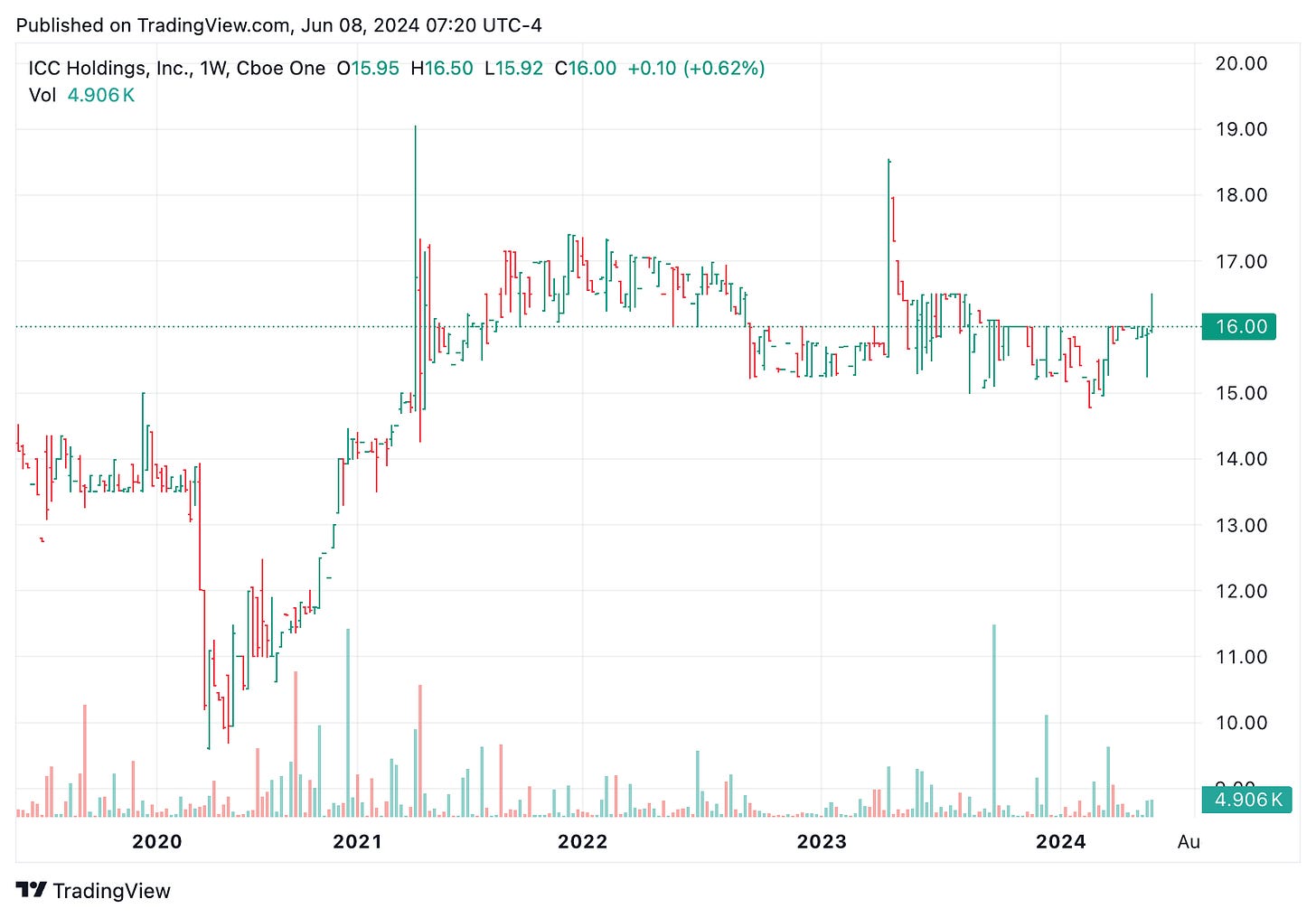Before we get started, if you haven’t already you should check out my first podcast appearance! I was recently on The Security Analysis Podcast where I discussed my investing philosophy and a few of my portfolio holdings.
In this post I want to share three stock ideas that appear to be undervalued. These companies came from the “top of the funnel” of my research process, meaning they came from stock screeners, or recommendations from Twitter and Substack. What I want to do here is present some qualitative and quantitative metrics that determine if I should keep researching the stock or take a pass on it. Further, I want to do a basic valuation to verify that the company is actually undervalued. The end goal is to have some semi-vetted stock ideas that I can add to a watchlist and start doing more thorough research on.
Walgreens Boots Alliance
Walgreens WBA 0.00%↑ , is one of the largest pharmacy retailers nationally and operating across nine countries with 13,000 locations. Recently the company has expanded its services by acquiring companies to offer healthcare services like urgent care. These in store clinics aim to provide customers with convenient healthcare options, steering them away from crowded doctor's offices and hospitals. Walgreens stock chart looks pretty gruesome, suggesting some challenges. The stock, which stood at $54 in January 2022, has steadily declined, now below $16. Various factors contribute to this downturn. While the onset of the COVID-19 pandemic initially boosted traffic due to testing and vaccine distribution, this surge has now normalized. Additionally, pharmacy benefit managers, acting as intermediaries between pharmacies and drug companies, have squeezed Walgreens' profit margins. Moreover, the company grapples with legal issues, such as its involvement in opioid settlements, resulting in significant payouts. To mitigate losses, Walgreens has been shuttering underperforming stores, incurring restructuring costs that obscure its financial results.
Historically, Walgreens has yielded modest returns on assets, indicating a lack of competitive advantage. Therefore, I will value the company based on its current earnings power instead of incorporating growth. Assuming expenses from restructuring and legal settlements stabilize, estimated operating profit could reach $5B, translating to a 3.5% operating margin based on last year's revenue of $140B. Applying a 25% tax rate to this profit yields $3.75 billion. Capitalizing at a 10% discount rate, the enterprise value amounts to $37.5 billion. Adding $670 million in cash and subtracting $7.5 billion in long-term debt, the equity value totals $30.7B, or approximately $35.50 per share. It appears Walgreens is trading at a deep discount to fair value, but investors must exercise patience and hope for potential improvements in margins. I will definitely be adding Walgreens to the watchlist and taking a closer look at the stock.

Vitesse Energy
Vitesse Energy VTS 0.00%↑ is an energy company that does not directly drill for oil, but owns interests in oil and natural gas-producing lands. I was interested in this company after being mentioned on the Focused Compounding Podcast and for its 8.5% dividend yield. Vitesse has only been a publicly listed company for about a year. The previously operated privately for a while, initially backed by Jeffries before being spun out. One benefit to VTS is that the CEO has experience in the Bakken oil field since the 1990s.
Given the cyclical nature of oil companies, I believe it's prudent to evaluate them based on their assets. The primary asset on their balance sheet comprises oil and gas properties, valued at $1,189M at cost, with $487M allocated for depreciation, depletion, and amortization (DD&A), resulting in a net value of $702M. Another valuation method is PV10, which calculates the present value of future oil and gas revenue using an average price of oil/gas, net of expenses, then discounted at 10%. This method yields a value of $682 million, based on $78 price of oil. The PV10 value is similar to value stated on balance sheet, but the balance sheet reflects a historical cost where you don’t know what the price of oil was at the time of the acquisition. Valuing reserves using PV10 reflects current prices, but obviously moves around as prices change. While the balance sheet and PV10 only value proved reserves, Vitesse Energy also owns unproved reserves, which may or may not add value. By incorporating PV10 into the balance sheet, an estimated equity value of $500.3 million is derived.
Turning to the cash flow statement shows that in 2023, cash flow from operations amounted to $142 million, with $120 million allocated for acquisition and development of oil and gas properties and $58 million for dividends. The dividend and capital expenditure exceeded cash flow, necessitating tapping into the credit facility. Presently, the credit facility stands at $98 million, with debt-to-EBITDA ratio at 0.85x, which is quite modest. Although I am tempted by Vitesse's high dividend yield, more work is required to better understand their dividend coverage. Additionally, while the stock currently appears fairly priced, it could be undervalued if one expects oil prices to reach $100 per barrel in the medium term.

ICC Holdings
ICC Holdings ICCH 0.00%↑ is a small insurance company specializing in serving the food and beverage industry. My interest in this company was piqued by its niche focus and the novelty of it being one of the few publicly listed companies headquartered in the Quad Cities, where my in-laws reside. Reviewing ICCH's underwriting results over the past five years, its combined ratio has hovered around the 100% mark, with a loss ratio typically around 64%. Without deeper industry knowledge, it's unclear whether this loss ratio is high or if expenses are the primary issue. Premiums have been steadily growing, potentially suggesting the extra expenses incurred are to generate premium volume. The company's strategy appears centered on breaking even on insurance operations while deriving profits from investments.
Total assets amount to $211M, mostly comprised of 78% in fixed income, 8.6% in stocks, and 4% in real estate. I am curious what stocks they hold and I have been wanting to checkout what apartment buildings they own in the Quad Cities area. Despite a 5-year revenue compound annual growth rate (CAGR) of 6.9%, net income is inconsistent, influenced by unrealized gains/losses on securities. ICCH does not pay dividends but has sporadically engaged in share repurchases in the past. For now, the company seems to be focused on growth and mostly retaining earnings. Perhaps in the future ICCH will start to consistently return capital. It looks like ICCHs goal is to break even growing premiums, create more investment income, then the investment income is basically the shareholders profit.
The stock is currently trading at about 70% of book value, so ICCH may be undervalued if book value continues to grow. If ICCH starts to return more capital to shareholders, then maybe the price gap to book value will close. I am interested in this company but I need to look at more insurers to better understand the industry.





i like the diversity of rational investors that are NOT fulltime.
nice pod.